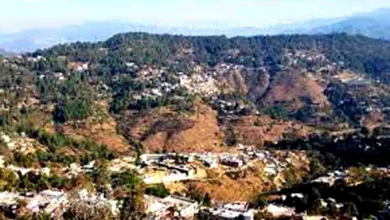The crumbling fronts of food security

GUEST COLUMN
 Vir Singh
Vir Singh
The situation of hunger, malnutrition and food insecurity is continuously increasing its worldwide prevalence. The Global Hunger Index (GHI) 2023 report says that the situation of hunger has become dire in many areas of the world. The Covid-19 pandemic, climate crisis and wars raging in many countries have been cited as the main reasons for this hunger. The continuous spread of hunger in the world is also confirmed by the report of the Food and Agriculture Organization (FAO), according to which in the year 2022, about 828 million people were suffering from hunger globally, which is equivalent to about 9.2 per cent of the world’s population.
Even after achieving new standards of progress in agriculture and technology, hunger, malnutrition and food insecurity remain an interrelated global challenge facing humanity. The global food system and the food security of humanity dependent on it are facing unprecedented circumstances due to population explosion, economic disparities, terrorism, geopolitical conflicts and wars, and climate change. From poor areas of the world and marginalised human groups to developing regions and even rich regions, food security remains a serious and seemingly unending issue. According to the target set by SDG-2 out of the 17 Sustainable Development Goals (SDGs) set by the United Nations, the world should attain “zero hunger” by the year 2030. But at present the roots of hunger are so deep that the goal of zero hunger seems like a mirage. It is already being estimated that by 2030, 6.7 million people in the world will be suffering from hunger and that situation, which is embarrassing to the world communities and organisations, will be showing a serious reality related to various socio-economic factors.
Along with starvation, malnutrition is also an important issue for the world. A recent report by the World Health Organization (WHO) reveals many facts that in the year 2023, about 149 million children under the age of five years were stunted and 45 million were underweight. Additionally, more than two billion people globally suffer from micronutrient (vitamins and minerals) deficiencies. Another form of malnutrition is obesity. This problem has also been rampant in the world. In the year 2020, more than 39 million children under the age of five worldwide were suffering from obesity.
Our India, home to approximately 1.4 billion people, remains an efficient player in global food security discussions. If there is a food crisis in any area, the world keeps expecting food supply from India. But India, which is a leader in food production, is not completely free from hunger and malnutrition. According to the Global Hunger Index 2023, India ranks 107th out of 212 countries, which indicates the severity of hunger. According to the FAO report on the State of Food Security and Nutrition in the World 2023, about 74 million people in India face food insecurity and another 18.92 million people, which is about 14 per cent of the total population, suffer from undernutrition.
Our country faces many food security challenges. With already prevailing economic disparities, regional disparities and inadequate distribution systems, now climate change has made its entry. India has been successful in becoming self-reliant on the front of grain production and songs of its success are sung all over the world. Not only self-reliant, India is also an exporter of grains, which is the basis of food security for millions of people in the world. But the country faces significant issues in ensuring access to adequate nutrition for all its citizens.
The Public Distribution System (PDS) in India has evolved as a food security umbrella for the people through distribution of food grains at affordable prices. PDS is operated under the joint responsibility of the Central and State/UT Governments. The Central Government has taken over the responsibility of procurement, storage, transportation and bulk allocation of food grains to the State Governments through the Food Corporation of India (FCI). By distributing subsidised food grains to the economically weaker sections, PDS provides food grains to about 67 per cent of the population. The significant step which the Indian government most creditably deserves global appreciation is the unceasing supply of free food grains to a large section of the people since the Covid-19 period. Apart from this, through mid-day meals in schools, nutritious food is provided to about 100 million children every day in the country.
Agricultural production systems and consequently global food security are very sensitive to weather and climate. Agricultural production also depends heavily on land, water and other natural resources that influence climate. For example, about 80 per cent of the available freshwater in India is used in agriculture. If there is indiscriminate use of underground water along with climate change, then it can be imagined how bad it will be for food production. Due to climate change, which is likely to accelerate further, agricultural practices in some areas of the world will be severely affected. According to a study by the International Food Policy Research Institute (IFPRI), up to 20 per cent decline in food grain production may be recorded by 2050 due to climate change. Such a situation will increase the chances of collapse of global and regional food security.
The most effective strategy to combat hunger and malnutrition is the development of eco-centric sustainable agricultural practices. Agricultural practices should be such that they have linkages with forestry and ensure conservation of soil, water and biodiversity. To permanently solve the problem of malnutrition, there should be such agricultural management in which people get all the essential nutrients for physical and mental development through food items. Urgent global and national efforts are needed to address climate change that is threatening food production and, consequently, food security. Climate-friendly agriculture, efficient water management systems and integration of renewable energy into farming will hopefully help in mitigating the adverse impacts of climate change on food security. Establishing a strong foundation for sustainable food security by balancing environmental balance and ecological amelioration and strengthening agro-forestry systems is the greatest demand of our time.
(The author is professor emeritus, environmental science, GB Pant University of Agriculture and Technology. Views expressed are personal)






